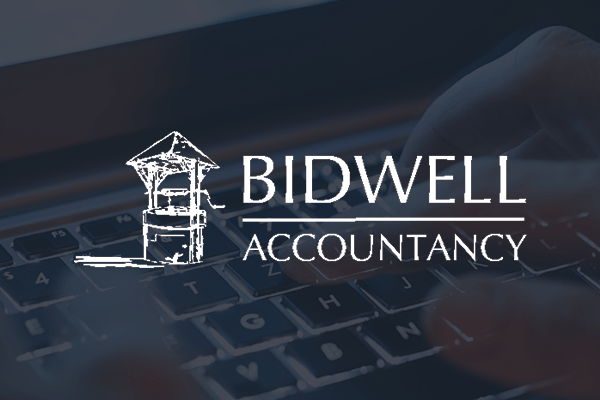Newsletter - December 2021
Christmas gifts for staff
Readers are reminded that there is a tax-free allowance for the provision of an annual party or other event for the benefit of staff and their partners. The present limit to tax relief is £150 per head. If this amount is exceeded, the full cost of the benefit is taxable not the excess over £150.
Where it’s not possible to calculate individual costs, an averaging process can be adopted. There are also other considerations that must be met to qualify for this relief.
Another way to benefit staff tax-free for Christmas is to consider making small gifts.
You don’t have to pay tax on a benefit (gift) to your employee if all of the following apply:
- it costs you £50 or less to provide
- it isn’t cash or a cash voucher
- it isn’t a reward for their work or performance
- it isn’t in the terms of their contract
Gifts that fall into this category are known as a ‘trivial benefit’; and whilst they may be much more than trivial in substance, you don’t need to pay tax or National Insurance or let HMRC know you are making the gift.
Any gifts that do not meet this definition will likely be taxable.
Gifts to directors are treated in a similar fashion with one over-riding condition: a director cannot receive trivial gifts of more than £300 in total each tax year. This restriction only applies to the directors of “close companies”. A close company is a limited company with five or fewer shareholders.
Watch out for VAT charge
If you recover the input tax charged when you buy gifts for employees, and if the total value of gifts given to an employee in a tax year exceeds £50, then you will have to account for VAT on the total value of gifts provided. If this is the case, you may be advised to avoid recovering the VAT in the first place.
Business gifts and tax
Business gifts are not allowed as a tax deduction against profits. The legislation treats gifts in the same way as business entertaining expenditure, which is also disallowed.
HMRC define a gift as:
“... something that is given to a person without receiving anything in exchange. It is offered voluntarily and without any expectation of a return. An example of this would be gifts provided for potential customers who take a test drive in a new car - there is no obligation to buy the car and so nothing has been given to the trader in return for the gift.
Gifts may also arise where goods or services are supplied at less than the cost to the trader. For instance, a hotel might offer meals to its suppliers at a nominal charge. Here the difference between the cost of the meal and the price paid is a non-allowable gift. By contrast, if a baker reduces the price of fresh bread at the end of the day, this is a normal commercial transaction (as the bread will be worthless by the next day) and the cost is allowed in full.”
Budget bonuses 27 October 2021
There was little good cheer in the Chancellor’s announcements to parliament on 27 October. A short summary of the good news is listed below:
- Annual Investment Allowance (AIA): The £1m limit to claims for tax relief when purchasing qualifying assets was due to return to a more modest £200,000 from the 1st of January 2022. This change has now been postponed until 31 March 2023. This takes the urgency out of decisions to purchase appropriate assets. This is a welcome extension of tax relief for capital expenditure, especially for unincorporated businesses who do not have access to the new 130% Super-deduction that is only available to companies.
- Museums and Galleries: The Museums and Galleries Exhibition tax relief is extended for a further two years until 31 March 2024.
- Theatre, Orchestra and Museums and Galleries Exhibition Relief: rates of relief have been increased to 31 March 2024.
- Capital Gains Tax deadline increased: The requirement to file calculations of capital gains due on certain residential property sales and pay any tax due within 30-days of completion - primarily on disposal of second homes and buy-to-let property - has been extended to 60-days. This affects all sales completed on or after 27 October 2021.
- Business rates relief extended: The business rates multipliers are frozen for a second year until 31 March 2023. The small business multiplier is set at 49.9p and the standard multiplier at 51.2p. Different rates apply in London and in Wales. The freezing of the multipliers will mean that your business rates will not increase in 2022-23. Eligible retail, hospitality and leisure properties will benefit from a 50% relief in their business rates for 2022-23, subject to a cap of £110,000 per business.
- National Living Wage: The basic NLW rate is increasing to £9.50 per hour from April 2022.
Budget bad news 27 October 2021
Readers should take note of the following changes:
- Income Tax Allowances frozen: The Income Tax personal allowance and the rates and bands are frozen until April 2026. Whilst this is not a direct tax increase, it does mean that any increases in earnings will be fully taxed and certain taxpayers may find that this process will push some of their income into the higher rate bands.
- Dividend Tax: To ensure that the tax payable on dividend income increases in line with the increase in NIC next year, from April 2022 the new rates payable on dividends in excess of the £2,000 tax-free allowance will be:
- Dividends that form part of the basic rate band - 8.75% (7.5% 2021-22)
- Dividends that form part of the higher rate band - 33.75% (32.5% 2021-22)
- Dividends that form part of the additional rate band - 39.35% (38.1% 2021-22)
For most director/shareholders of smaller companies who have adopted the high dividend low salary approach to remuneration, will pay more tax as a result, but this should not affect the overall strategy.
- Corporation Tax: The planned increase in rates to 25% (currently 19%) from April 2023 was confirmed. From 1 April 2023, there will be two rates of CT. Taxable profits up to £50,000 will continue to be taxed at 19%, taxable profits more than £250,000 will be taxed at 25%. Profits between £50,000 and £250,000 will be subject to a marginal tapering relief. This would be reduced for the number of associated companies and for short accounting periods.
- Increasing the normal minimum pension age: The earliest age at which pension savers can access their pensions without incurring an unauthorised payments tax charge is changing. From 6 April 2028, the normal minimum pension age is increasing from 55 years to 57 years. Affected individuals may need to revisit their retirement plans.
If you are concerned by any aspects of the recent Budget, please call.
Tax Diary December 2021/January 2022
1 December 2021 - Due date for corporation tax payable for the year ended 28 February 2021.
19 December 2021 - PAYE and NIC deductions due for month ended 5 December 2021. (If you pay your tax electronically the due date is 22 December 2021).
19 December 2021 - Filing deadline for the CIS300 monthly return for the month ended 5 December 2021.
19 December 2021 - CIS tax deducted for the month ended 5 December 2021 is payable by today.
30 December 2021 - Deadline for filing 2020-21 self-assessment tax returns online to include a claim for under payments to be collected via tax code in 2022-23.
1 January 2022 - Due date for corporation tax due for the year ended 31 March 2021.
19 January 2022 - PAYE and NIC deductions due for month ended 5 January 2022. (If you pay your tax electronically the due date is 22 January 2022).
19 January 2022 - Filing deadline for the CIS300 monthly return for the month ended 5 January 2022.
19 January 2022 - CIS tax deducted for the month ended 5 January 2022 is payable by today.
31 January 2022 - Last day to file 2020-21 self-assessment tax returns online.
31 January 2022 - Balance of self-assessment tax owing for 2020-21 due to be settled on or before today unless you have elected to extend this deadline by formal agreement with HMRC. Also due is any first payment on account for 2021-22.

Unit 157, Milton Keynes Business Centre,
Foxhunter Drive, Milton Keynes,
Buckinghamshire, MK14 6GD
Bidwell Accountancy





